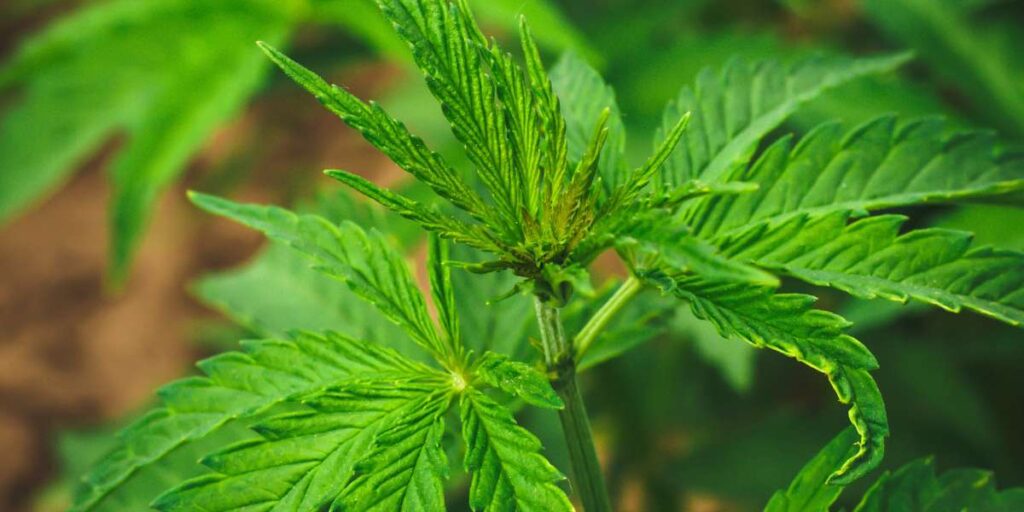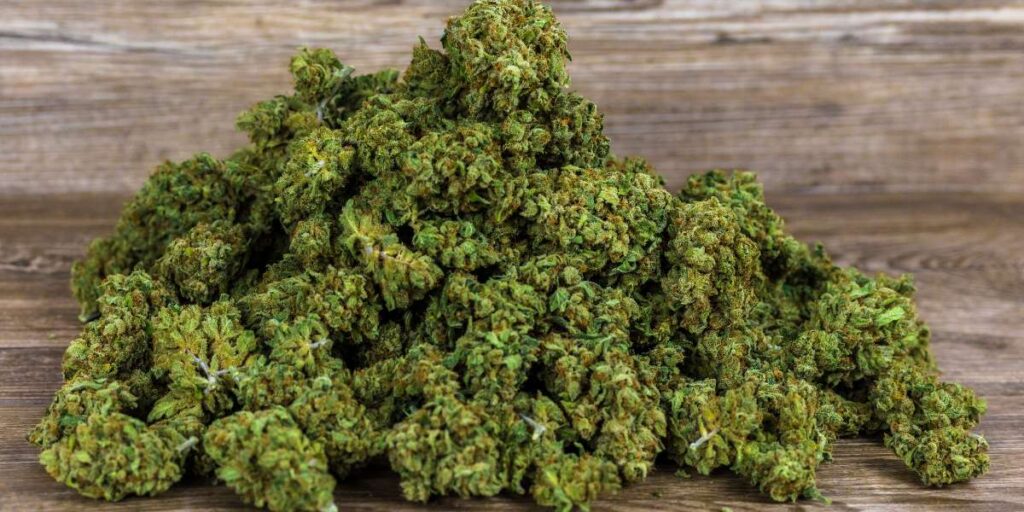Cannabidiol (CBD), commonly referred to as an extract derived from cannabis plants, has recently gained increasing attention due to its therapeutic potential. CBD is non-psychoactive; thus eschewing any sense of “high” experienced when taking its counterpart tetrahydrocannabinol (THC). Unfortunately, however, some have the misconception that CBD may leave users feeling “spacey.” In this article, we will examine its effects while dispelling any myths surrounding potential disorientation caused by CBD use.
Understanding CBD

CBD is one of over one hundred cannabinoids found in cannabis plants, known as cannabinoids. It interacts with our bodies’ endocannabinoid system (ECS) which plays an essential role in regulating sleep, mood, pain relief, and immune functions. Unlike THC which binds directly to cannabinoid receptors within our ECS systems, CBD instead modulates their activity instead.
Does CBD Make You Feel Spacey? The answer is here!
No, CBD usually doesn’t cause feelings of spaceiness. Unlike THC, which produces psychoactive effects that produce a “high,” CBD is generally associated with feelings of relaxation and calm.
At high doses, some individuals may experience mild drowsiness; however, the effects are generally subdued and do not require medical supervision. Therefore, legal products with clear labels must be used to avoid unintended THC consumption.
The Non-Psychoactive Nature of CBD
One of the primary draws to CBD is its non-psychoactive nature, meaning consuming CBD without other psychoactive elements will not induce euphoria or alter one’s state of mind. THC is responsible for this psychoactivity in cannabis; legally sold CBD products in most jurisdictions contain less than 0.3% THC which should not produce an immediate high.
Scientific Studies on CBD’s Effects
Scientific research into CBD is still evolving, but evidence pointing towards its therapeutic applications is steadily mounting. Studies involving anxiety treatment, pain management, epilepsy management, neurodegenerative disorders like Alzheimer’s disease as well as their possible benefits are underway. Without reporting any significant side effects like feeling spacey or disoriented among participants who were administered CBD.
CBD’s Impact on Cognitive Function
CBD is of great interest both to researchers and consumers, alike. There is evidence suggesting CBD could positively influence memory and attention; according to one 2020 study published by the Journal of Clinical Psychopharmacology, researchers discovered it did not impair cognitive performance among healthy participants. In fact, some reported improvements including increased focus and concentration.
Factors Contributing to Feeling Spacey
CBD does not contain properties that directly cause spaceiness, yet many associate it with such effects. Therefore, it’s essential that we consider several potential contributors that could play a part in creating this perception:
Mislabeling or Contamination: Some CBD products on the market may fail to fully disclose their ingredients, and may contain impurities like high levels of THC which could produce psychoactive effects and leave users feeling dizzy or spacey.
Individual Sensitivity: Everybody’s body chemistry varies, with some people possibly being more sensitive than others to certain compounds such as CBD. They could experience mild drowsiness or relaxation which might be misinterpreted as spaceiness.
Dosage and Interaction: CBD dosage can have an impact on how individuals react to it. Higher doses may have sedative properties that result in feelings of relaxation or drowsiness, while their interaction with other medications could alter their metabolism or intensify their effects. Before taking CBD with any prescription medicines it is wise to consult a healthcare professional first.
Understanding CBD and THC
Before discussing the effects of CBD, it’s important to comprehend its relationship to THC. Though both compounds come from cannabis plants, their chemical structures and effects differ substantially and they interact differently within our bodies.
THC (delta-9-tetrahydrocannabinol) is the main psychoactive compound present in cannabis, responsible for creating the “high” associated with marijuana use. When in contact with cannabinoid receptors in the brain, THC activates numerous effects that alter perception, mood, and cognition resulting in changes to perception, mood, and cognition.
However, CBD is non-psychoactive and does not bind strongly to cannabinoid receptors in the body; rather it interacts with various receptors and neurotransmitter systems in order to modulate their activity and produce potential therapeutic benefits.
Psychoactive Properties in CBD
One of the primary reasons that CBD does not produce psychoactive effects or make you feel spacey is its unique mechanism of action. Instead of directly binding with cannabinoid receptors like THC does. CBD acts on other receptors like serotonin and vanilloid receptors which play important roles in mood regulation, pain perception, and inflammation control.
Furthermore, CBD may inhibit an enzyme responsible for breaking down anandamide – a natural cannabinoid produced in our bodies – thus amplifying its therapeutic benefits while also increasing anandamide levels to promote a sense of well-being without altering cognitive function.
Researchers Explore CBD’s Effects

Many scientific studies have examined the effects of CBD in various settings, providing insight into its possible benefits and revealing any possible implications on cognitive functioning.
Anxiety and Stress Reducing Effects: CBD has shown promising results in animal and human studies for relieving anxiety and stress, including serotonin receptors involved in mood regulation. By modulating serotonin activity, CBD may help alleviate anxiety symptoms without producing mind-altering side effects.
Contrary to popular belief, studies indicate that CBD does not diminish cognitive function but may in fact enhance it. Animal studies have demonstrated its neuroprotective and even enhancer properties while improving memory, learning, and overall brain health. Further investigation must be conducted in humans in order to fully understand these effects on cognition and their underlying mechanisms.
Sleep and Relaxation: CBD has garnered much interest as a potential aid for insomnia-related issues, but more research needs to be conducted on its effects on sleeping patterns. While research on CBD’s effects is limited, some studies indicate it could improve the quality of sleep while simultaneously alleviating insomnia symptoms. By encouraging relaxation and decreasing anxiety, CBD may indirectly help increase the overall quality of sleep without impairing cognitive function or creating any side effects such as spaciness or disrupted cognitive performance.
Personal Variations in CBD’s Effects: It is essential to recognize that the effects of CBD may differ for every individual depending on factors like biochemistry, dosage, and consumption method. These could all influence how CBD interacts with both body and mind.
Some individuals may experience an immediate feeling of relaxation from taking CBD, while others may not see any noticeable side effects at all. To maximize effectiveness and ensure the safest results possible, start off slowly before gradually increasing the dosage if necessary to gauge individual response and ensure maximum flexibility for personal results.
Conclusion:
CBD will not make you spacey or cause mind-altering effects as THC does. CBD is non-psychoactive and does not directly bind with cannabinoid receptors responsible for marijuana’s euphoric high. It interacts with various receptors in your body to promote relaxation, reduce anxiety, and enhance overall well-being.
Studies conducted to date on CBD have highlighted its therapeutic potential, with studies suggesting its success at relieving anxiety, enhancing cognitive performance, and aiding sleep. Individual responses may differ depending on factors like dosage, biochemistry, or method of consumption.


